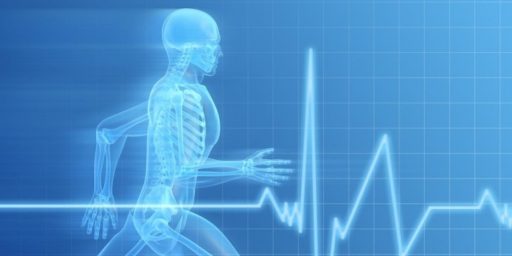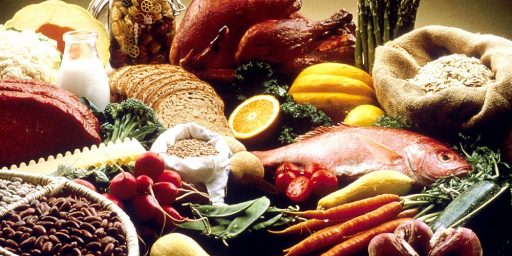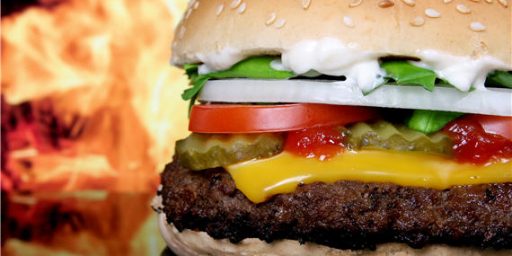High Protein Diets Curb Appetite
A new study confirms what most of us already knew: high protein-low carbohydrate diets actually work. The findings, though, indicate that the reason is appetite suppression, not biochemical reaction to carbohydrates, may be the real explanation.
High-protein diets curb appetite (Reuters)
The ever-popular low-carbohydrate diets appear to work because they force people to eat more protein, which consequently suppresses the appetite, not because of a lower carbohydrate intake, according to new study findings published in the American Journal of Clinical Nutrition. These results suggest that it’s not necessary for people to cut back carbohydrates to lose weight, according to Dr. Arne Astrup of the Royal Veterinary and Agricultural University in Copenhagen, who wrote an accompanying editorial. Protein appears to encourage people to eat fewer calories overall, Astrup noted, so if people simply increase their intake of protein, that should help them lose weight. “You can just eat a little more lean meat and low-fat dairy products,” Astrup recommended.
Lead study author Dr. David S. Weigle of the University of Washington School of Medicine in Seattle and his colleagues note that low-calorie diets rarely work. This has encouraged researchers to consider that changing the ingredients of the diet, but not its calories, makes a difference in people’s waistlines.
Previous research shows that low-carbohydrate diets, typically high in fat and protein – are effective, the authors report, but so are low-fat diets.
Interesting.






James –
The findings, though, indicate that the reason is appetite suppression, not biochemical reaction to carbohydrates, may be the real explanation.
ARGGGGGGGGGGGHHHHHHHHHHHHHHHHHH!
I know I’m picking on blogging shorthand, but this is not an “either-or” scenario.
1. There is a “biochemical reaction” to the high protein/low carbohydrate diet – simple examples: less insulin spikes (fat storing), glucagon (fat-storing), higher GH and testosterone levels (fat burning), among a bunch of other things.
2. There is the fact that a diet high in protein and fat can represent a diet that represents less calories overall, as calories are more easily and quickly consumed in the form of carbs.
3. And there is a satiation affect related to some of the aforementioned “biochemical reactions” that effectively reduces carbohydrate cravings after a period on the diet, reinforcing the other two factors. This produces a suppressed appetite and can even gin up a slight euphoric effect.
And probably a hundred factors that I haven’t listed.
The real crime here is committed by the dumbass (and I don’t throw that word around lightly) nutritionists that cling to the old “calories in = calories out” balancing equation regarding weight loss, like some flat-earth adherents of yesteryear.
It’s notable that this article and research directly challenges that inaccurate conventional wisdom:
This has encouraged researchers to consider that changing the ingredients of the diet, but not its calories, makes a difference in people’s waistlines.
Ya think?
Phew.
Ok, I’m all better now.